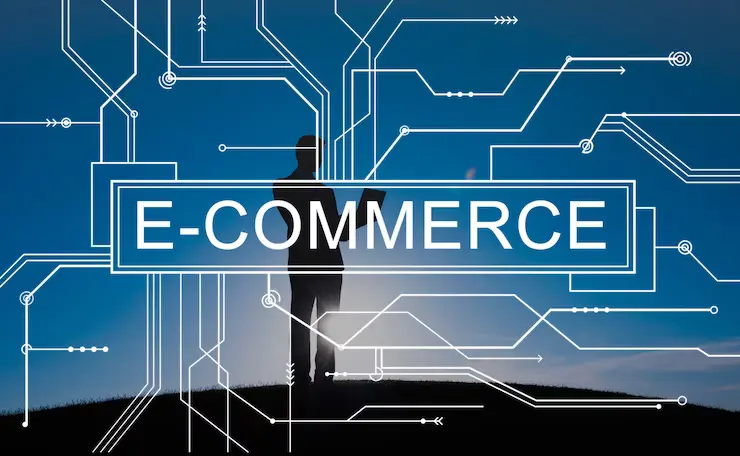Welcome to our blog! In this fast-paced digital era, where online shopping has become a part of our everyday lives, scaling your eCommerce business has never been more important. With countless opportunities and fierce competition in the online marketplace, it’s crucial to stay ahead of the game and make sure that you know how to scale an eCommerce Business.
In this article, we will explore some of the best tips and strategies to help you scale your eCommerce business in 2023. Whether you’re just starting out or looking to take your established online store to new heights, our informative guide will provide you with valuable insights to drive your business forward. Join us on this exciting journey of discovery and empowerment as we unlock the secrets to sustainable growth and success in the world of eCommerce!
Why Scaling Matters?
Scaling your eCommerce business involves expanding your operations, reaching a larger customer base, and increasing your revenue. It is an essential step for any business owner who aims to maximize their profits and establish a prominent online presence. With the right approach, you can take advantage of the growing digital landscape and turn your small online store into a thriving enterprise.
Scaling vs. Growing Your Business

When it comes to scaling and growing your eCommerce business, understanding the key differences between these two concepts is essential for strategic decision-making. While both involve expansion, they operate on distinct principles that can significantly impact the success of your online venture.
Growing your business typically entails incremental progress, focusing on steady improvements, and gradually expanding your customer base. It involves attracting new customers, increasing sales, and expanding your product offerings. Growing your eCommerce business is a foundational step that establishes stability and lays the groundwork for future expansion. It often involves organic growth through effective marketing strategies, optimizing the customer experience, and building brand loyalty.
On the other hand, scaling your business is about achieving rapid and exponential growth. It involves implementing strategies and leveraging resources to increase revenue at a much higher rate than your costs. Scaling requires a shift in mindset and the adoption of innovative approaches to achieve significant growth milestones. Unlike growth, scaling may involve disruptive changes, such as entering new markets, expanding product lines, or adopting advanced technologies to enhance operational efficiency.
Read More: How To Build An App Without Coding
How To Scale An eCommerce Business?

Scaling an eCommerce business requires a bold and strategic approach that goes beyond traditional growth strategies. To achieve exponential growth and establish a dominant presence in the competitive online marketplace, you need to leverage innovative tactics and optimize every aspect of your operations! Here are some tips from us that will help you scale your eCommerce Business.
1) Develop a Scalable Business Model
To scale your eCommerce business, it’s crucial to have a scalable business model in place. Evaluate your current processes, systems, and infrastructure to ensure they can handle rapid growth without compromising quality or efficiency. Embrace automation, implement robust inventory management systems, and streamline your operations to handle increased demand effectively.
2) Optimize Customer Experience
Delivering an exceptional customer experience is paramount for scaling your eCommerce business. Focus on providing personalized and seamless interactions at every touchpoint. Leverage data and analytics to understand your customers’ preferences and behavior, allowing you to tailor your offerings and marketing strategies accordingly. Invest in user-friendly website design, fast loading times, and intuitive navigation to enhance the overall shopping experience.
3) Leverage Data-Driven Decision Making
Make data your guiding compass when scaling your eCommerce business. Analyze customer data, purchase patterns, and market trends to identify growth opportunities and make informed decisions. Utilize advanced analytics tools to gain valuable insights into customer behavior, product performance, and marketing effectiveness. Data-driven decision-making will enable you to optimize your strategies, minimize risks, and allocate resources more effectively.
4) Expand Market Reach
To achieve significant growth, consider expanding your market reach beyond your current customer base. Explore new target demographics, geographic locations, or even international markets. Conduct thorough market research to identify untapped opportunities and tailor your marketing efforts to resonate with these new audiences. Leverage digital marketing channels, social media platforms, and influencer partnerships to increase brand visibility and attract a broader customer base.
Read More: What Is Search Engine Marketing?
5) Embrace Innovative Technologies
Embracing innovative technologies can give your eCommerce business a competitive edge and propel it to new heights. Explore emerging trends such as artificial intelligence, machine learning, and augmented reality to enhance the customer experience, optimize operations, and drive sales. Leverage automation tools to streamline repetitive tasks, implement chatbots for customer support, and adopt predictive analytics to forecast demand and inventory needs accurately.
6) Foster Strategic Partnerships
Strategic partnerships can be instrumental in scaling your eCommerce business. Collaborate with complementary businesses or influencers in your industry to expand your reach, tap into new markets, and access a larger customer base. Joint marketing initiatives, co-branded campaigns, or cross-promotions can help drive traffic, boost sales, and enhance brand visibility.
7) Implement Effective Marketing Strategies

Marketing plays a pivotal role in scaling your eCommerce business. Invest in comprehensive marketing strategies that encompass both organic and paid channels. Develop a strong brand identity and consistently communicate your unique value proposition to your target audience. Utilize search engine optimization (SEO) techniques to improve your website’s visibility in search results, run targeted advertising campaigns on platforms like Google Ads and social media, and leverage email marketing to nurture customer relationships and drive repeat purchases.
8) Prioritize Customer Retention
While acquiring new customers is essential for growth, retaining existing customers is equally important for scaling your eCommerce business. Implement customer retention strategies such as loyalty programs, personalized offers, and exceptional post-purchase support. Focus on building long-term relationships with your customers through excellent customer service, proactive communication, and personalized experiences. Satisfied and loyal customers not only generate repeat business but also become brand advocates, driving organic growth through referrals and positive reviews.
9) Invest in Customer Relationship Management (CRM) Systems
CRM systems enable you to manage and nurture customer relationships effectively. Implement a robust CRM system that consolidates customer data, tracks interactions, and facilitates targeted marketing campaigns. Leverage CRM insights to understand customer preferences, anticipate their needs, and deliver personalized experiences. By effectively managing customer relationships, you can enhance customer satisfaction, increase customer lifetime value, and drive sustainable growth.
Read More: 20 Benefits Of A Content Management System
10) Focus on Operational Efficiency
Operational efficiency is key to scaling your eCommerce business. Continuously evaluate and optimize your supply chain, logistics, and fulfillment processes to ensure seamless order fulfillment and delivery. Implement inventory management systems to prevent stockouts and streamline order processing. Embrace lean principles to minimize waste, increase productivity, and reduce costs. By optimizing your operations, you can handle increased order volumes efficiently, improve customer satisfaction, and drive scalability.
11) Seek Funding or Investment Opportunities
Scaling your eCommerce business may require additional financial resources. Consider seeking funding options such as venture capital, angel investors, or business loans to fuel your growth initiatives. Prepare a comprehensive business plan highlighting your growth potential, market opportunities, and projected financial performance. Explore investment opportunities that align with your business goals and leverage external funding to accelerate your scaling efforts.
12) Continuously Innovate and Adapt
To remain competitive and sustain growth in the ever-evolving eCommerce landscape, continuous innovation and adaptation are crucial. Stay updated with industry trends, consumer preferences, and emerging technologies. Monitor competitors and market dynamics to identify new opportunities or potential threats. Foster a culture of innovation within your organization, encourage creativity, and embrace a mindset that is open to experimentation and change. By staying ahead of the curve and proactively adapting, you can position your eCommerce business for long-term success.
13) Build a Strong Team
Scaling your eCommerce business requires a capable and dedicated team. Surround yourself with talented individuals who are aligned with your vision and possess the skills necessary to drive growth. Hire professionals with expertise in areas such as marketing, operations, technology, and customer service. Delegate responsibilities effectively, foster a collaborative work environment, and empower your team to take ownership of their respective roles. A strong team will not only support your scaling efforts but also contribute innovative ideas and strategies.
14) Foster Customer Feedback and Reviews

Feedback from your customers is invaluable for scaling your eCommerce business. Encourage customers to provide reviews and ratings for your products or services. Actively listen to their feedback and use it to enhance your offerings, address pain points, and improve the overall customer experience. Positive customer reviews and testimonials can significantly impact brand reputation, attract new customers, and build trust. Prioritize customer satisfaction and actively engage with your audience to foster a loyal customer base.
15) Establish Strategic Alliances and Partnerships
Collaborating with strategic alliances and partners can open up new avenues for scaling your eCommerce business. Identify potential partners who complement your products or services and share a similar target audience. Forge mutually beneficial relationships, such as affiliate partnerships, co-marketing campaigns, or cross-promotions. Partnering with established brands or influencers can help you gain exposure, tap into their existing customer base, and accelerate your growth trajectory.
16) Leverage Influencer Marketing
Influencer marketing has become a powerful tool for scaling eCommerce businesses. Identify influential individuals within your niche who have a strong online presence and a dedicated following. Collaborate with these influencers to promote your products or services to their audience. Their endorsement can generate brand awareness, drive traffic to your eCommerce store, and result in increased conversions. Develop authentic and mutually beneficial partnerships to leverage the reach and influence of these online personalities.
17) Invest in Continuous Learning and Skill Development
As an eCommerce entrepreneur, it’s vital to stay updated with industry trends, best practices, and new technologies. Invest in continuous learning and skill development to enhance your knowledge and expertise. Attend industry conferences, workshops, and webinars. Join relevant communities or forums to network with other eCommerce professionals and gain insights from their experiences. By staying informed and continuously improving your skills, you can make informed decisions, innovate effectively, and lead your business to greater heights.
18) Monitor Key Metrics and Performance Indicators
To successfully scale your eCommerce business, you need to track and monitor key metrics and performance indicators. Establish clear goals and metrics that align with your growth objectives. Regularly analyze data related to website traffic, conversion rates, customer acquisition costs, average order value, and customer lifetime value. Use this data to identify areas for improvement, make data-driven decisions, and adjust your strategies accordingly. By closely monitoring your performance, you can identify opportunities for optimization and make adjustments to drive scalable growth.
19) Implement a Referral Program
A referral program can be a powerful tool for scaling your eCommerce business. Encourage your existing customers to refer their friends and family to your store by offering incentives or rewards. Develop a referral program that is easy to participate in and provides benefits for both the referrer and the new customer. Word-of-mouth marketing through referrals can generate a steady stream of new customers and contribute to exponential growth.
Additional Reading: Why Is My Shopify Down? Simple and Easy Fixes 2023
20) Leverage Social Media Advertising
Social media platforms offer a vast audience and robust targeting options, making them ideal for scaling your eCommerce business. Invest in social media advertising campaigns to increase brand visibility, drive traffic, and generate conversions. Utilize demographic and interest-based targeting to reach your ideal customers. Develop compelling ad creatives and optimize your campaigns based on performance data. Social media advertising can significantly amplify your reach and help you expand your customer base rapidly.
21) Focus on Mobile Optimization

With the increasing use of smartphones, optimizing your eCommerce store for mobile devices is crucial for scaling your business. Ensure that your website is mobile-friendly, loads quickly, and provides a seamless user experience across various mobile devices and screen sizes. Simplify the checkout process to minimize friction and enhance mobile conversions. By catering to the growing mobile audience, you can tap into a larger market and drive significant growth.
22) Embrace Personalization and Customization
Personalization is a key driver of customer satisfaction and loyalty. Leverage technology and customer data to offer personalized product recommendations, tailored promotions, and targeted messaging. Implement dynamic content that adapts to each customer’s preferences and behavior. Provide options for customization, such as personalized products or flexible purchasing options. By delivering a personalized experience, you can enhance customer engagement, build stronger relationships, and drive repeat purchases.
23) Explore Cross-Selling and Upselling Opportunities
Cross-selling and upselling techniques can contribute to increased average order value and revenue growth. Identify related products or complementary offerings that align with your customer’s interests and purchasing patterns. Implement cross-selling strategies by suggesting additional products that enhance the customer’s shopping experience. Upselling involves offering premium versions or upgrades of products the customer is interested in. By leveraging these techniques effectively, you can maximize the value of each customer transaction and drive revenue growth.
24) Monitor and Respond to Customer Reviews
Customer reviews have a significant impact on the reputation and success of your eCommerce business. Actively monitor and respond to customer reviews, both positive and negative. Address any issues or concerns promptly and professionally. Show appreciation for positive feedback and use it to reinforce customer satisfaction. By actively managing customer reviews, you can build trust, improve your brand image, and attract new customers who value transparency and excellent customer service.
25) Cultivate a Strong Brand Identity
A strong brand identity sets your eCommerce business apart from the competition and fosters customer loyalty. Develop a distinctive brand voice, visual identity, and brand story that resonates with your target audience. Consistently communicate your brand values, mission, and unique selling points through your website, social media channels, and marketing campaigns. Invest in professional branding and ensure that every touchpoint reflects your brand identity. By building a strong brand, you can create a lasting impression and establish a loyal customer base that contributes to scalable growth.
Cost Of Scaling Your eCommerce Business

Scaling your eCommerce business requires careful financial planning and investment. While the specific cost will vary depending on the size and nature of your business, it’s important to allocate resources strategically to support your growth objectives. Here, we will provide a brief overview of the potential costs involved in scaling your eCommerce business.
Infrastructure and Technology Investment
Scaling your eCommerce business often entails investing in robust infrastructure and advanced technologies. This includes upgrading your website and hosting capabilities to handle increased traffic and transaction volumes. You may need to invest in scalable cloud-based solutions, payment gateways, and secure data storage systems. Additionally, you might consider integrating advanced analytics tools, inventory management systems, and automation software to enhance operational efficiency. While these investments come with upfront costs, they are essential for sustaining growth and ensuring a seamless customer experience.
Marketing and Advertising Expenses
To scale your eCommerce business, you need to increase your brand visibility and attract a larger customer base. This often requires investing in marketing and advertising initiatives. Depending on your target audience and market, you may allocate funds for digital advertising campaigns, search engine optimization (SEO), social media marketing, influencer collaborations, content creation, and email marketing. The cost of marketing can vary significantly based on your goals and the competitiveness of your industry. It’s essential to allocate a budget that allows you to reach your target audience effectively and drive customer acquisition.
While scaling your eCommerce business does involve costs, it’s important to view them as investments rather than expenses.
Bottom Line
Remember, scaling your eCommerce business is not a one-size-fits-all endeavor. It requires a deep understanding of your target audience and a willingness to adapt to changing market trends. By putting the customer at the forefront of your strategies, optimizing your processes, and leveraging cutting-edge technologies, you can create a sustainable foundation for long-term growth. Furthermore, never underestimate the power of collaboration and networking. Forge partnerships, build strategic alliances, and engage with industry experts to gain valuable insights and foster growth opportunities.
Remember, scaling your eCommerce business is not a destination but an ongoing process of evolution. Stay curious, adapt to emerging trends, and continuously innovate to stay ahead of the curve. The journey may be challenging, but the rewards are immense.
FAQs
Why is scaling important for eCommerce businesses?
Scaling is crucial for eCommerce businesses because it allows them to achieve sustainable growth and maintain a competitive edge. By scaling, you can meet the increasing demands of your customer base, expand your market reach, and improve operational efficiency. It positions your business for long-term success in the ever-evolving digital landscape.
How can I determine if my eCommerce business is ready to scale?
Assessing the readiness of your eCommerce business to scale involves evaluating various aspects. Look at your current revenue growth, customer demand, operational capacity, scalability of your technology infrastructure, and ability to handle increased orders. Additionally, analyze market trends, competitor landscape, and the potential for expansion into new markets.
What are some potential challenges I may face when scaling my eCommerce business?
Scaling an eCommerce business is not without challenges. Some common obstacles include managing increased order volumes, ensuring seamless logistics and supply chain management, maintaining product quality, competing with established market players, and effectively managing cash flow. However, with proper planning, strategic execution, and a focus on continuous improvement, these challenges can be overcome.
Where can I find additional resources and support for scaling my eCommerce business?
There are several resources available to support you in scaling your eCommerce business. Explore industry-specific forums, online communities, and blogs for valuable insights and discussions. Engage with industry experts, attend relevant conferences or webinars, and consider partnering with business consultants or agencies specializing in eCommerce growth strategies. Additionally, stay updated on the latest trends and advancements in the eCommerce landscape through industry publications and reports.




